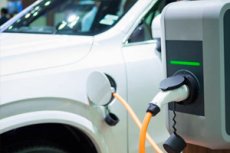
根据《流行病学与社区健康杂志》在线发表的 2013-2017 年英国伤亡率研究,行人被电动或混合动力汽车撞到的可能性是汽油或柴油汽车的两倍。
研究人员表示,城市地区的风险更高,政府需要采取行动降低风险,逐步淘汰化石燃料汽车,以改善空气质量并应对气候变化。他们表示,道路交通事故是儿童和青少年死亡的主要原因,四分之一的道路交通死亡事故中行人死亡。
随着电动和混合动力汽车的不断普及,人们担心这些汽车可能比化石燃料汽车对行人构成更大的危险,因为它们更安静,尤其是在背景噪音水平较高的城市地区。
为了进一步探究这一点,研究人员使用道路安全数据 (STATS19),比较了英国每 1 亿英里道路行驶中电动/混合动力汽车与化石燃料汽车的行人受伤率差异。他们使用国家出行调查 (NTS) 的数据估算了年行驶里程。该数据在 2013 年才开始将混合动力汽车纳入燃料类型,但由于存档故障导致 2018 年的相关数据无法下载,因此选择 2013 年至 2017 年作为研究期。
总体而言,分析涵盖了 320 亿英里的电动/混合动力汽车和 3 万亿英里的汽油/柴油汽车。
2013年至2017年间,英国共记录了916,713起道路交通伤亡事故。其中,120,197人为行人,96,285人被汽车或出租车撞倒。
其中四分之三(71,666人,占74%)的行人被汽油或柴油汽车或出租车撞倒。约有1,652人(占2%)被电动或混合动力汽车撞倒。但近四分之一的案例(22,829人,占24%)缺少车辆类型代码。
大多数碰撞事故发生在城市地区,电动或混合动力汽车的碰撞事故比汽油/柴油汽车的碰撞事故更多:分别为94%和88%。相比之下,农村地区的碰撞事故分别为6%和12%。
基于这些数据,研究人员计算出,从2013年到2017年,每行驶1亿英里道路,电动和混合动力汽车的年平均行人受伤率为5.16人,汽油和柴油汽车的年平均行人受伤率为2.40人。
研究人员表示,这表明,电动和混合动力汽车与行人相撞的可能性平均是汽油和柴油汽车的两倍,城市地区与行人相撞的可能性平均是农村地区的三倍。
他们承认他们的研究结果存在一些局限性,包括缺乏 2017 年以后的数据以及近四分之一的案例缺乏车辆编码。
此外,他们认为,较年轻、经验较少的驾驶员更容易卷入道路交通事故,也更有可能拥有电动汽车,这或许可以解释这些车辆所观察到的一些风险增加。
研究人员写道:“在英国,被汽油和柴油汽车撞伤的行人比被电动汽车撞伤的行人多,但与汽油和柴油汽车相比,电动汽车对行人构成的风险更大,而且在城市环境中风险更大。”
他们认为:“对于我们的研究结果,一个合理的解释是,城市和农村地区的背景噪音水平不同,这使得城市地区的行人不太能听到电动汽车的声音。”
他们强调:“从公共卫生的角度来看,我们的研究结果不应该阻碍步行和骑自行车等健康的主动交通方式;相反,它们可以用来了解和预防可能增加的道路交通伤害风险。”
他们最后指出,随着政府继续逐步淘汰汽油和柴油车辆,电动和混合动力汽车给行人带来的风险需要减轻。

